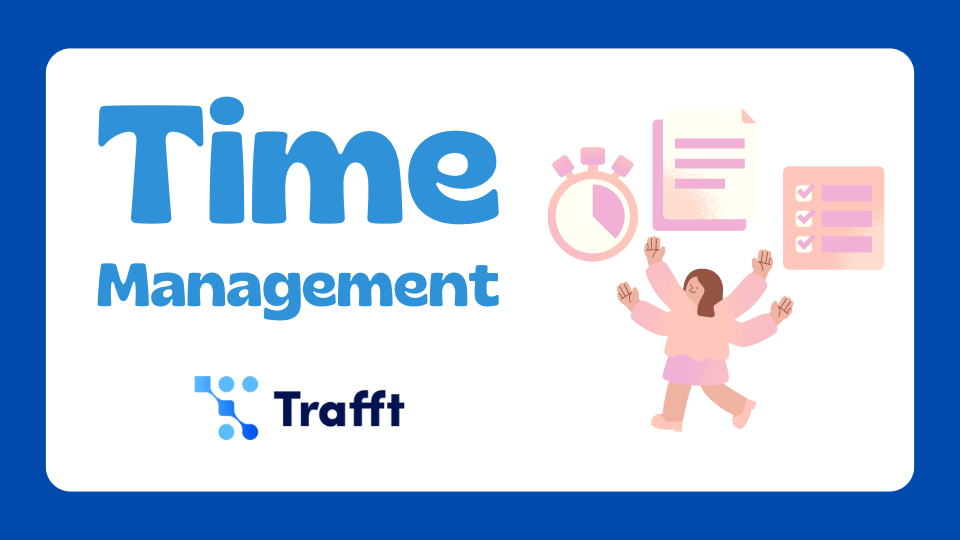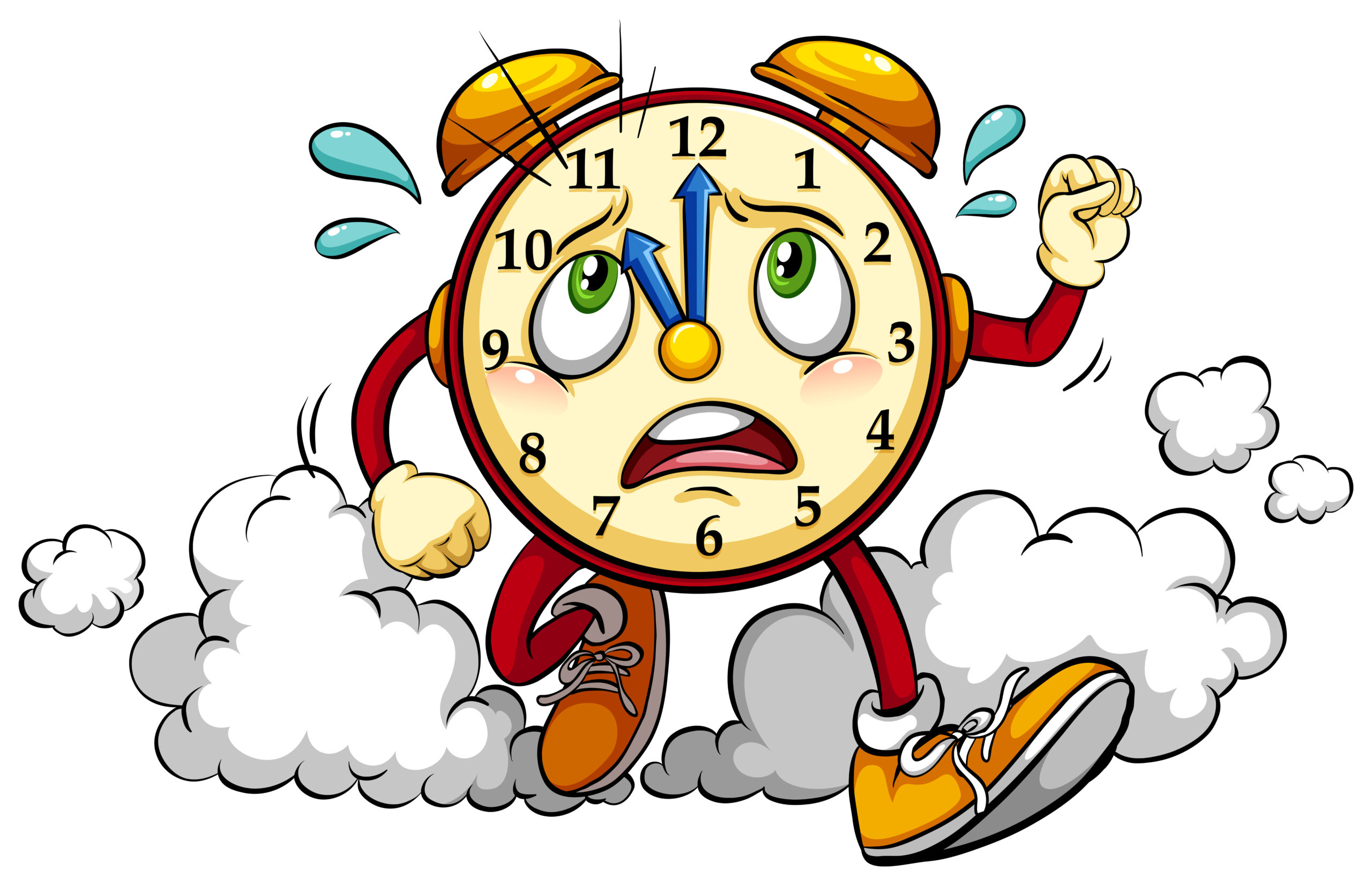The one thing every single person in the world has in common is that we all have the same amount of time in a day. Sure, daylight hours vary but you get the gist. Time management is a universal struggle for us all.
You can’t underestimate the importance of time management in any facet and stage of our lives. As children, we’re trying to get our homework done. As teenagers, we try to have time to hit every party. And as adults, many of us are trying to manage our time at work. We’ll cover the importance of time management in business, but also give you actionable tips to take advantage of it and hone your time management skills.
The importance of good time management lies in what you get out of it. One time management benefit could be less time on admin tasks and more time with clients. You could be a better worker, colleague, or boss with more time to build relationships.
What Defines Good Time Management?
Effective time management materializes when you utilize your time in the most efficient and effective manner possible. Essentially, it involves making optimal use of your time.
Time management includes planning your time and controlling how much time you spend on different things. This should help you increase efficiency as well as make you more productive. Implementing boundaries in your work can foster an improved work-life balance.
If you choose to improve your time management, you can expect to do better at work and achieve your goals more easily. On the other hand, if your time management is poor, the results can be huge:
- Missed deadlines
- Lowered professionalism
- Stress
- Lower quality work
- Procrastination
- Bad workflow
- Deteriorated relationships
- Work/life imbalance
- Bad professional reputation
Why is Time Management Important?
The first step to understanding why time management is important is to look at the big picture. To put it into practice, you need a solid understanding of what you’ll gain from it. Here are 8 reasons why time management is important:
Time is a limited resource

Each of us has the same amount of time in a day – 24 hours. You have 24 hours, and so does your coworker who spends their whole day gossiping with very little work output.
However, guess who else has 24 hours in a day?
The coworker who was promoted over you, your boss, and the CEO. If you want to move up in the business world, you need to harness the limited resources of time that we are all given.
Work quality will improve
It’s expected that you maintain a certain standard of quality in your work.
By organizing and planning your time well, you can do better quality work without much more effort.
Prioritizing the important tasks helps you focus on them and give them the attention they require. That’s how the quality of your work will improve.
Work smarter, not harder
As a business professional, you inherently recognize that managing your time prudently bolsters productivity. It allows you to immerse yourself fully in the task at hand, eliminating the distractions associated with multitasking.
Multitasking may appear as an efficient time management strategy, but it often leads to subpar results. Allocating dedicated time to individual tasks enhances their execution speed and quality, surpassing the multitasking approach.
Enjoy a good work and life balance
To maintain a good work-life balance, categorize your workday tasks, creating a schedule that extends until your designated end-of-work time. You will only need to work late if you deviate from your schedule. Try jotting down both your work tasks and personal events on paper, and then integrate them into your schedule. This action will help you clearly separate your personal and professional life.
Reduce time spent on work that’s not your strong suit
Once you identify your strengths that contribute to your goals, focus on minimizing the time spent on tasks where you don't excel. After pinpointing these areas, prioritize your time for tasks where your efforts provide the most value to the company. Some organizations use skills matrix software for their teams to keep an overview of who can handle which tasks and spot where support is needed. That kind of visibility makes it easier to delegate low-value work and protect focus time.
Flourish in your career
Mismanaging your time can result in last-minute work, forgotten appointments, and missed deadlines. If these issues become frequent, they may harm your professional reputation.
Reliable workers always hand in quality work by the deadline. If you can do this consistently, you will be more highly valued at work and will establish a positive reputation. This can help you move up, either through promotion or finding other work.
Find your confidence
Managing your time effectively and consistently meeting deadlines undoubtedly boosts your confidence at work. Adhering to your schedule and checking off tasks can help you feel accomplished, even with small goals. This sense of achievement can propel you towards tackling larger and more complex projects.
Lowered stress levels
Falling behind on your work can quickly lead to feelings of being overwhelmed as if you've been burdened with excessive tasks. In such cases, starting on the accumulating workload can seem daunting, causing you to fall even further behind. This situation can also adversely affect your mental and physical health.
Time management statistics show that high amounts of stress can lead to depression, heart disease, and obesity, amongst other things. With good time management, you won’t have to worry about forgetting tasks or missing a deadline. You will have already planned out your time so that this won’t happen.
What Are the 4 Benefits of Time Management for Entrepreneurs?
The 4 most important benefits of time management are definitely increased productivity, reduced stress, improved work-life balance, and enhanced goal achievement. You’ll achieve more in less time and consequently feel less stressed about your responsibilities.
How to Take Advantage of the Importance of Time Management in Business
There are many ways to create a business environment that takes advantage of the importance of time management. Business owners should consider the below time management tips to improve general time management in their company and get things done faster.
Create a schedule

The single most important part of effective time management is effective scheduling – planning your time in advance. If you know you’re more productive in the morning, finish the hardest tasks first. If you’re more productive in the evening, maybe hit the gym before work and come in late. Then stay late to get everything done. It’s about finding out what works best for you.
Prioritize your day
Your schedule and to-do list should prioritize your tasks in order of importance. This will help you stay focused and achieve your goals. Consider what absolutely must be done by the end of the day. Then start doing the tasks in order of importance. One great time management technique is a time management matrix that categorizes tasks based on urgency and their importance.
The Pareto Principle can help you manage time
The Pareto Principle is also called the 80:20 rule. It is a time management system that helps you use your energy and time well. It suggests that 80% of your outcomes come from 20% of your efforts. So, you can use the Pareto Principle to search for what the 20% is that you should be focusing your time on.
Create measurable goals
Whether you’re an employee or a business owner, creating measurable goals is crucial to success. Having goals that are clear and with a defined outcome will help you stay on track.
You should be able to measure how far you’ve gotten with that goal. These smaller goals within your larger goal can be called milestones and will help you feel inspired to keep at it. Consider what you want to have achieved by this time next week, month, or year.
Organize meetings and appointments better
Many people complain about how pointless and boring meetings are. They don’t believe that they benefit their work at all. In reality, the even bigger time-waster is the scheduling of the meeting.
By using tools to help with your time management, you can save even more time. There is appointment booking software that will help you manage your schedule, as well as create staff schedules.
For example, Trafft is an all-in-one booking software solution that caters to small to medium-sized companies. It helps you create appointments and events, but it can also take online payments and appointment bookings.
It sends appointment reminders to clients and colleagues via text message, email, or WhatsApp to remind them of appointments they have booked with you. Let the software do all the admin work for you and don’t let hours go to waste on organizing meetings.
On a side note, Trafft is a SaaS version of the popular scheduling plugin for WordPress - Amelia. Over 4,000+ businesses worldwide are improving their time management with the help of this amazing software, so make sure to check it out if you are a WordPress user.
And if you want to discover how Trafft and Amelia stack up against each other, delve into our in-depth Trafft vs. Amelia comparison.
Don’t Let Time Management Overwhelm You
While time is important, keeping track of time too closely can actually cause stress.
Rather than trying to manage everything down to the second, it’s more important to think about prioritizing. Some things will take as long as they take. But if you’re doing everything in order of priority, that’s fine.
Stop Multitasking
As discussed earlier, many people believe that multitasking is the fastest way to get a lot done. In reality, multitasking is a terrible time management technique that decreases productivity by distracting you. People often end up starting lots of things and not finishing any of them rather than completing a lot of tasks.
FAQs About the Importance of Time Management
1. What is time management and why is it important?
The process of arranging and planning how to use your time wisely in order to accomplish your goals is known as time management. To ensure productivity, lower stress, and anxiety, and succeed in both personal and professional life, one must practice effective time management. Those who are good at managing their time may effectively balance their priorities, utilize their time, and accomplish their goals.
2. How can effective time management improve productivity?
Good time management enables people to prioritize their workload, dedicate their time to the most crucial tasks and activities, and set attainable goals. It also helps to avoid procrastination and focus on finishing activities in a timely manner, which ultimately leads to higher productivity.
3. How can time management help reduce stress and anxiety?
Those who have good time management skills feel more in control of their lives and experience less stress and overwhelm. People can prevent feeling overwhelmed and keep on top of their workload by prioritizing chores and dividing them into manageable parts. As a result, anxiety levels may decline and mental health may improve.
4. What are some common time wasters that can be eliminated with good time management practices?
Distractions include social networking, protracted meetings, shoddy communication, and multitasking, which are typical time wasters. By establishing definite goals, setting up specified periods for tasks and activities, and avoiding distractions that could disrupt workflow, good time management techniques can assist in getting rid of these time wasters.
5. What are some practical tips for better time management in the workplace?
Practical ideas for better time management in the office include setting explicit goals, prioritizing activities, breaking down jobs into manageable steps, developing a timetable or to-do list, avoiding multitasking, and setting clear boundaries to avoid distractions.
6. How can time management skills benefit one's personal life and relationships?
A better work-life balance can help people build better personal and interpersonal connections and enhance their general wellness. By setting clear priorities, individuals can devote more time to personal pursuits and relationships, which can lead to a more fulfilling and enjoyable life.
7. What are the consequences of poor time management?
Missed deadlines, less productivity, more stress and anxiety, and strained relationships are all consequences of poor time management. It may also lead to a lack of advancement toward one's personal and professional objectives, which can cause disappointment and dissatisfaction.
8. What are some techniques or tools that can be used for effective time management?
Making a calendar or to-do list, breaking work down into manageable pieces, setting precise goals, prioritizing tasks, using time-tracking applications, and assigning chores to others are some approaches and tools for successful time management.
9. How can time management help achieve long-term goals?
Time management is crucial for attaining long-term objectives because it enables people to maintain their attention on what is crucial and avoid being diverted by distractions. People can move forward consistently with their long-term objectives by prioritizing tasks and breaking them down into achievable steps.
10. What role does prioritization play in effective time management?
Effective time management relies heavily on prioritization because it enables people to concentrate on the activities and tasks that are most crucial. People can effectively use their time and accomplish their goals by prioritizing what is most important and allocating their time and resources accordingly.
Ending Thoughts on Why Time Management is Important & More Resources
Time management lets you take control of your life by taking control of your time. You will have more free time and feel like you’re in charge of your destiny, meeting goals left, right, and center.
If you’re a business owner or manager, remember that others look to you for how to manage their work. Whether you’re trying to influence others or not, you are. You’re also influencing your business outcomes and profitability.
When you learn why time management is important, you’ll find that it improves productivity and efficiency. You should work on your time management skills to set an example for your employees. This will lead to having a more profitable business.
If you enjoyed reading this article about why is time management important, you should read about why we don't like to waste time.
We also wrote about a few related subjects like time management systems, the time management matrix, time management courses, time management quotes, time management strategies, techniques, and time management statistics.
Do you want an app for that? We also selected the best time management apps, but also free time management apps for tight budgets, and if you're looking for a time tracking app, we picked the best of them.
Needless to say, we are really into time management and we know how poor time management can affect us.







